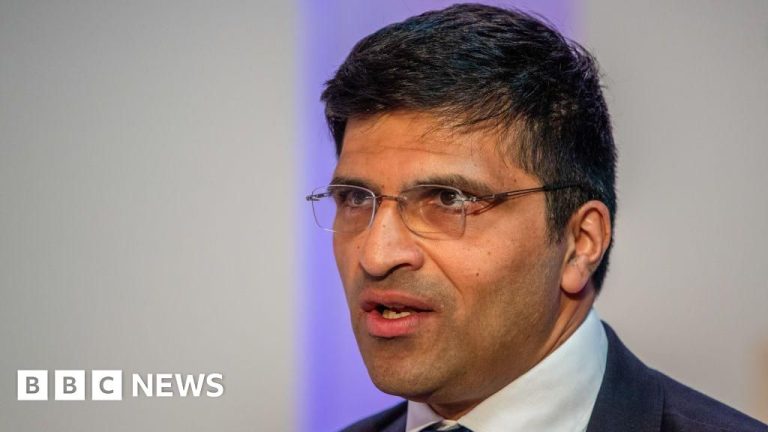The boss of the UK's financial watchdog said criticism from MPs that the institution had failed to reform after years of scandal was “unfair”.
Nikhil Rathi, chief executive of the Financial Conduct Authority, said it is “tackling financial crime… on a scale that has never been done before in the UK”.
He was responding to a report from a cross-party group of MPs which claimed the FCA was “incompetent” and its culture “had gotten worse rather than better”.
He also accused the FCA of failing to properly investigate the banks and other financial organizations it regulates, suggesting it may be too close to them.
The report published on Tuesday follows backlash against the FCA's handling of the Neil Woodford investment scandal and other controversies such as its debanking report.
He was referring to years of similar criticism from other reports, including a 2016 New City Agenda article that said there was “a deeply ingrained box-ticking culture” at the FCA.
The report also objects to the suggestion that the FCA has changed.
“It is imperative that the reader does not fall into the trap of thinking that the FCA… has already resolved the long list of problems that the painstakingly compiled evidence shows it has done, when it has not the case,” the report said. .
However, in an interview with BBC Radio 4's Money Box, Mr Rathi defended the FCA against the allegations and argued the regulator had improved.
“We will always remain focused on improving our operational performance, but I don’t think it would be fair to characterize the situation as nothing happened,” he said.
He added that the FCA is pursuing “a record number of financial crimes prosecutions” and is “one of the most advanced consumer protection regimes in the world”.
The report goes on to argue that the FCA may have been “captured”, meaning it is too aligned with banks and other financial organizations to act against them.
He claims there are “unmanaged conflicts of interest” within the FCA due to its role in both protecting consumers and promoting economic growth.
He suggests the watchdog should be reduced to a regulator purely focused on consumer welfare, leaving the government to focus on economic growth.
He also suggests that the FCA's leadership be replaced “if necessary”, calling its current leaders “opaque and unaccountable”.
Mr Rathi said the issue of growth versus consumer protection “needs debate” but that Chancellor Rachel Reeves was pushing for further growth.
He acknowledged that promoting growth can mean increased risks for consumers, highlighting changes being made to allow more companies to list in the UK, such as on the London Stock Exchange.
“We have been very transparent throughout this discussion over the previous 18 months that this would bring more risk into the system, (but) it was deemed necessary,” he said. declared.
“This means that over time other things will go wrong, but the risk appetite in the economy must adjust to support the growth the economy needs.”
On the issue of accountability, Mr Rathi said the FCA appears before Parliament and selected committees and publishes more data than “any other regulator in the world”.
A Treasury spokesperson told the BBC: “Many of the issues explored in the report have been considered in depth and, as a result, the FCA has made a number of changes. »

